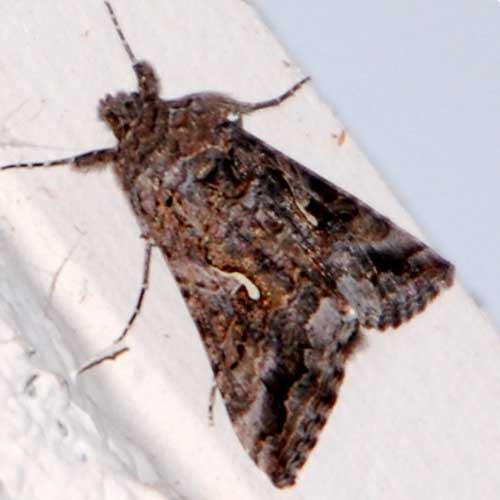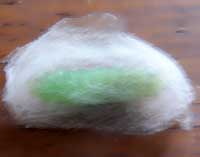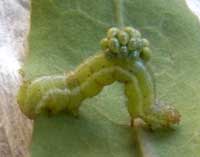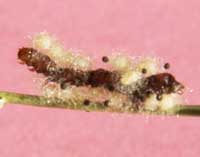Cabbage Looper
Trichoplusia ni

An adult Cabbage Looper moth rests beneath a porch light in Glendale, Arizona Maricopa Co., Arizona. February 2012.
Sponsored Link(s)
The Cabbage Looper is found pretty much everywhere on the planet and may have just followed farmers in search of the leafy vegetables that the caterpillars feed upon. The white comma mark on the forewing is a distinctive trait for the adult moth whereas the looping locomotion of the caterpillar is usually sufficient to identify the immature stage.


Near Rackensack Wash I found several looping caterpillars on Wire Lettuce (Stephanomeria pauciflora) in April 2012. I should not have been surprised when an adult Cabbage Looper moth emerged from its pupa. Despite the name cabbage looper, these insects feed on a wide variety of plants, including lettuce in gardens and farms. At left is a coccon with a freshly moulted pupa inside. It will darken in a few days and later, about 7 days, the moth emerged. On the right is a caterpillar that had inside of it about a dozen Apanteles larvae! They've just emerged to the outside of the caterpillar's body. The caterpillar will die and instead each of the little Apanteles grubs will spin its own cocoon (photo below). For gardeners the gruesome work of these tiny wasps is a big help in reducing the damage the caterpillars can do to their crops.
